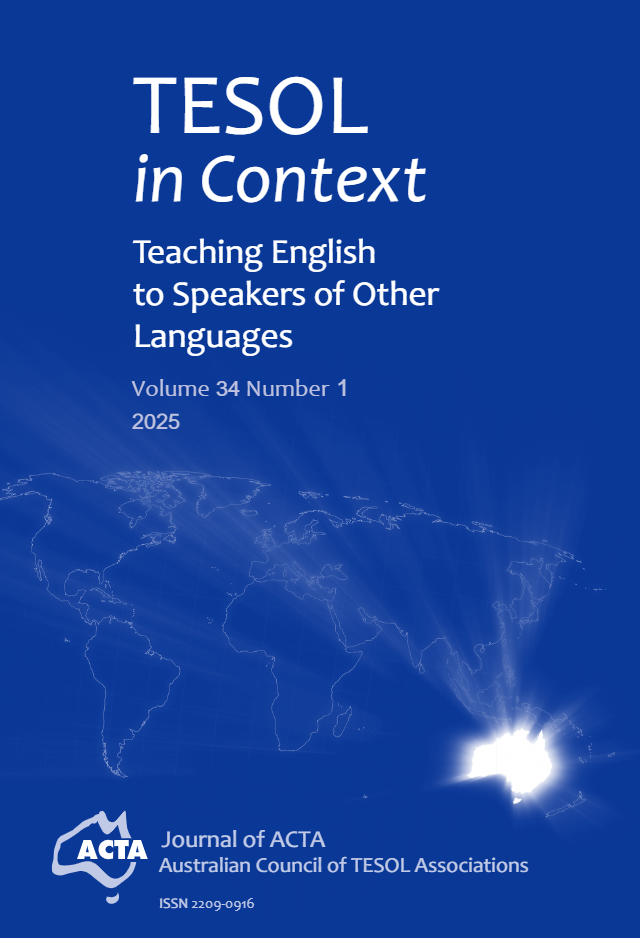How EAL teachers harness a bespoke artificial intelligence tool to achieve personalised learning: A qualitative classroom-based study
DOI:
https://doi.org/10.21153/tesol2025vol34no1art2155Keywords:
Artificial Intelligence , Generative AI, AI education, English as an additional language, teachers, personalisation, classroom-based researchAbstract
Recent advancements in artificial intelligence (AI) have led to a surge in AI-powered English language tutoring applications, with promising features integrated into teaching and learning. This article reports on a qualitative study of teachers’ leveraging AI to support pedagogical outcomes for adult learners of English as an additional language (EAL). The study involved five teachers from a Melbourne-based EAL provider, focusing on their use of a bespoke AI-powered application (app) in their superdiverse classrooms of adult migrant and refugee background students. Through classroom observations and teacher reflective conversations, the study examined how teachers were incorporating the app’s features into curriculum through their lesson plans and scaffolded activities. Findings reveal that despite various challenges, EAL teachers want to explore with guidance more of the app’s advanced features and expand their pedagogical use of the app to achieve and enhance personalised learning for students. This calls for increased opportunities for teachers to engage in classroom-based experimentation with the app and for professional development that boosts teachers’ confidence and agency to use AI teaching assistance with adult students from diverse cultural and linguistic backgrounds.
Metrics
Downloads
Published
Issue
Section
License
Copyright (c) 2025 TESOL in Context

This work is licensed under a Creative Commons Attribution-ShareAlike 4.0 International License.






